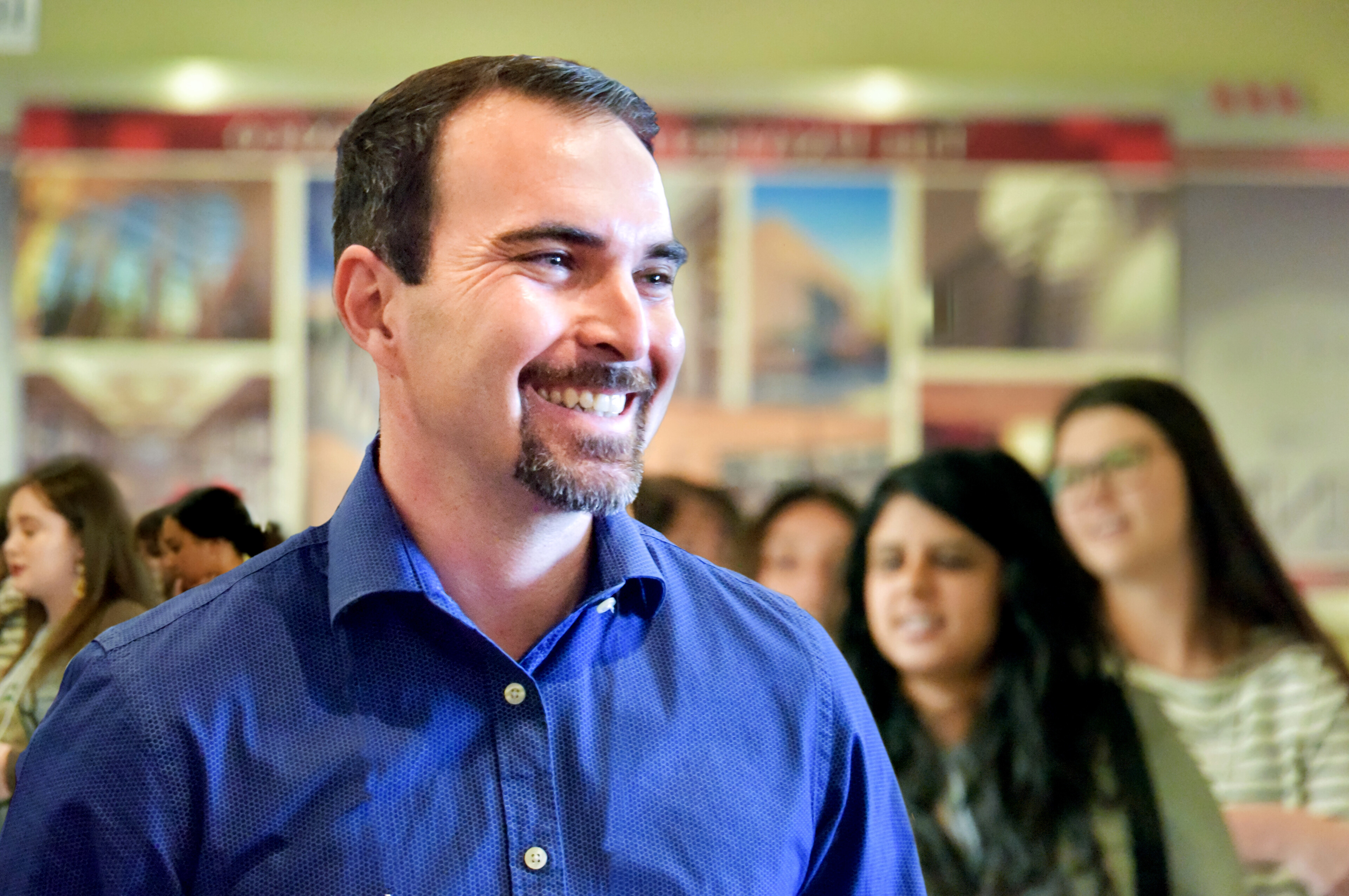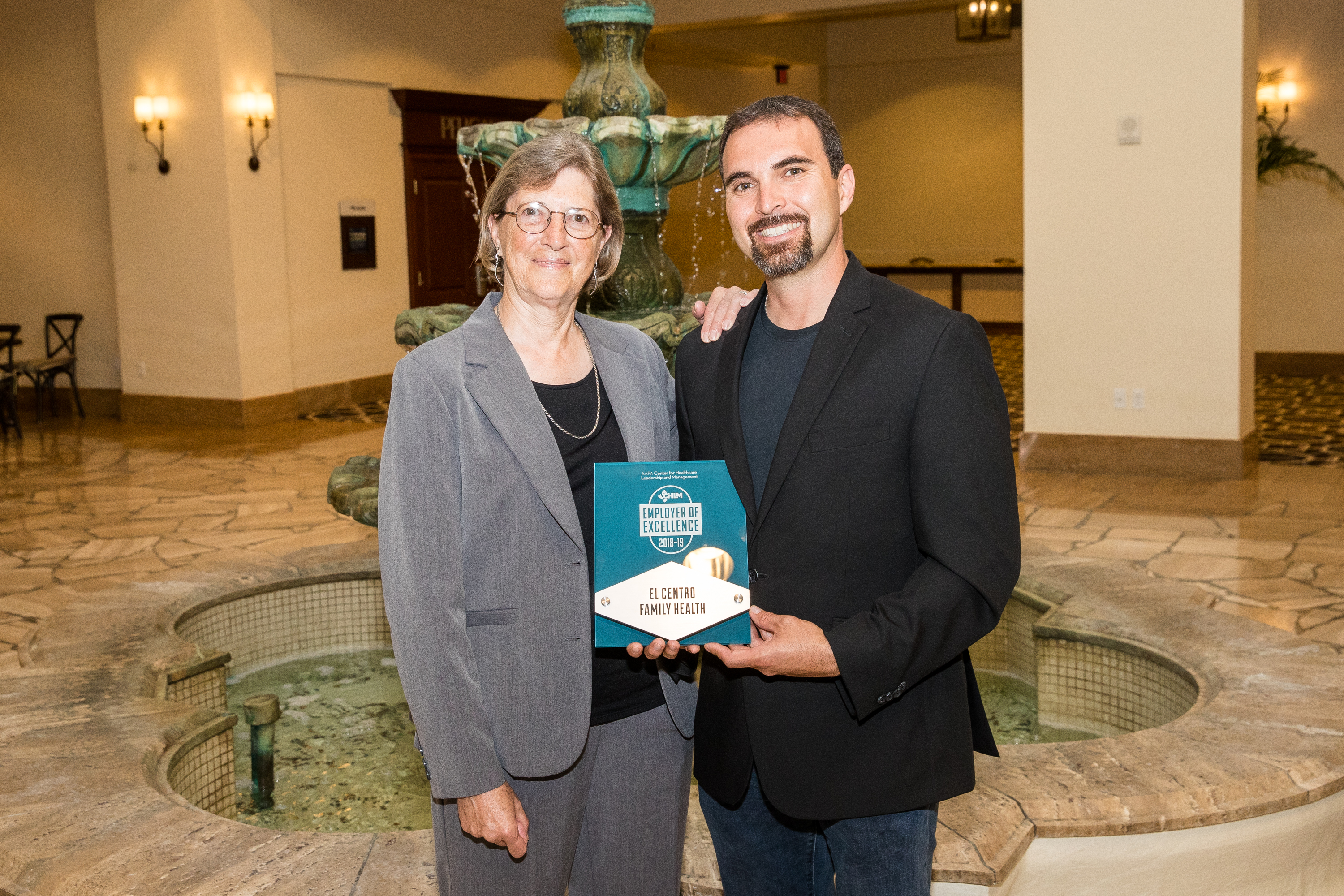2019 PA of the Year ‘Lives to Serve’ New Mexico’s Rural Communities
Community Medicine is Matthew Probst’s True Passion
April 15, 2019
By Sarah Blugis

Earlier in April, you may have seen the 2019 PA of the Year Award recipient on television. Matthew Probst, PA-C, is the Chief Quality Officer and Medical Director at El Centro Family Health in Rural New Mexico. He and two other healthcare professionals at El Centro were recently the subjects of a documentary called The Providers, which focuses on the physician shortage and opioid epidemic in rural America.
The PA of the Year Award honors PAs who demonstrate exemplary service to the community; exemplify the PA profession’s philosophy of providing accessible, quality healthcare to all; and further the image of the profession in a positive, meaningful way.
While The Providers and his selection as the American Academy of PAs’ (AAPA) PA of the Year Award shine a spotlight on Probst, for him, it’s all about his mission.
“My hope is that [this award] shines attention on and brings resources to our rural and underserved healthcare fight for addressing all healthcare disparities,” Probst says. “We all must advocate for individual patients, one human at a time, but also push together for policy change. Our society is judged by how we treat our most marginalized people.”
In his own words, Probst “lives to serve,” and knew early on in his career that he wanted to practice in a rural community. He attended the PA program at the University of New Mexico School of Medicine. After shadowing his first PA mentor at the Indian Hospital in Santa Fe, New Mexico, he was inspired by his mentor’s passion for volunteering with youth at a local Indian school. It was then that he committed himself to being a rural PA.
For much of his career, Probst has worked at El Centro – first from 2004 to 2006, and then from 2008 to the present. As chief quality officer (CQO), he is the first PA to serve on the El Centro executive team. Additionally, Probst is the first PA medical director in New Mexico, and leads a team of 43 providers in 27 clinics. He still sees patients three days each week.

As a Federally Qualified Health Center (FQHC), El Centro treats 19,000 patients annually at 14 community health centers, nine school-based health centers, and three dental clinics across 23,600 square miles of rural New Mexico. In 2018, El Centro was selected as a recipient of the AAPA Center for Healthcare Leadership and Management Employer of Excellence Award.
Probst has stepped in to play an important role in addressing the opioid epidemic, also advocating for the PA profession in the process. He currently serves as an informal advisor for a member of the U.S. Congress and a member of the New Mexico Senate, and is the New Mexico Academy of Physician Assistants representative on the New Mexico Health Care Workforce Committee. His accomplishments in those roles have made him an influential voice, allowing him to fight for bigger changes – including an expansion of PA Medication-Assisted Treatment (MAT) prescription privileges through the Comprehensive Addiction and Recovery Act (CARA).
Now, Probst is leading efforts to plan a Comprehensive Recovery Center for northeastern New Mexico, and is working to gain the support of the city, county, and state governments. It will be called the Grace Recovery and Assessment Center, named after a talented youth from the local community who died of an opioid overdose in 2018.
Community medicine is Probst’s passion, he says, often working with youth through coaching and volunteering. For him, his greatest professional achievement is founding the Semillas De Salud “Grow Your Own” Health Professional program, which focuses on encouraging local youth to pursue healthcare careers and return to serve in their local communities. In 2018, Semillas reached its 10th year of operation.
Probst says that precepting health professional students and mentoring youth in health career clubs in local high schools creates an additional network of mentors and peer health educators. This force “multiplies our limited resources into an extensive rural workforce, saving many lives,” he says.
“Regardless of how or where each PA chooses to fight for health, we pour ourselves fully in and inspire others to do the same,” Probst says. “I am so proud to be a PA because PAs are so humble, but also because that’s what makes us so strong.”
Thank you for reading AAPA’s News Central
You have 2 articles left this month. Create a free account to read more stories, or become a member for more access to exclusive benefits! Already have an account? Log in.



